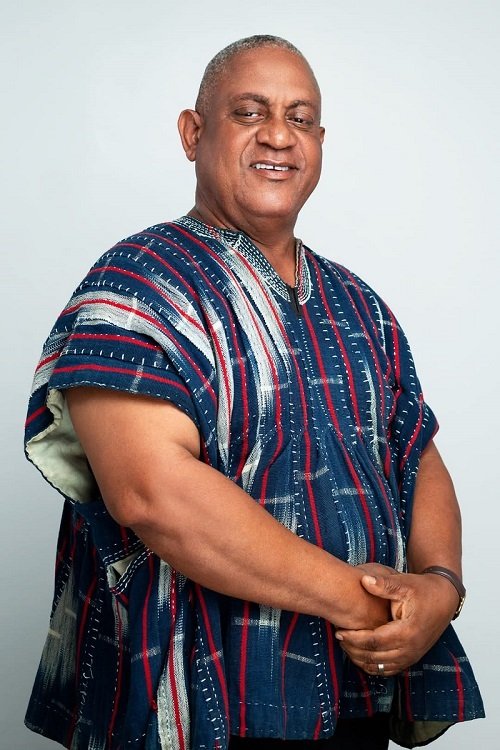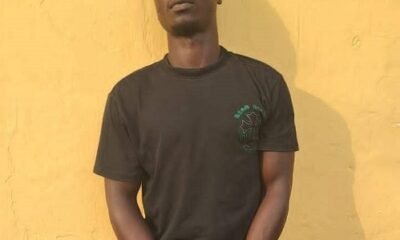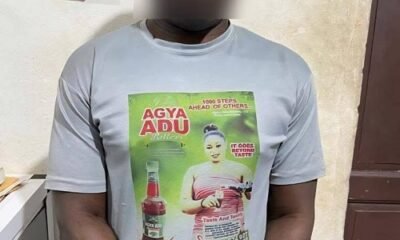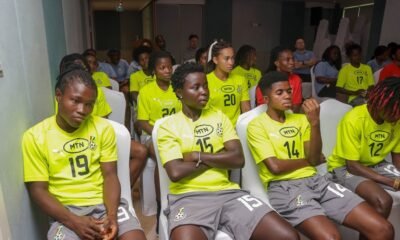News
Be role models to your children – Fathers told

As Ghana prepares to join the rest of the world to celebrate Father’s Day tomorrow, A Minister in charge of the Gateway Temple Assemblies of God (A/G), Sowutuom, Rev. Benjamin I. K. Adaletey, has urged men to embrace fatherhood not just as a biological role, but as a divine and sacred calling.
Speaking in an exclusive interview with The Spectator in Accra on Tuesday, Rev. Adaletey explained that fatherhood was deeply spiritual and essential to the moral and emotional foundation of families and communities.
“Fatherhood is more than biology; it is a divine function,” he said.
According to him, men who may not have their own children can still serve as spiritual fathers, mentors, and protectors to other children in the community.
Drawing from traditional African values, Rev. Adaletey highlighted the long-standing culture of communal parenting.
“In the African context, we have always valued communal responsibility. A real man steps up to guide, correct, affirm, and protect the younger generation. Whether through mentorship, teaching, counseling, or simply being present; these men embody fatherhood in action,” he emphasised.
He stated that the church especially needs such men, not just teachers, but fathers.
He admonished fathers who feels they have missed the mark that, grace was still available. He said God is the restorer of broken years and fractured relationships.
Moreover, Rev. Adaletey noted that fatherhood was a journey, not a destination and that even great men in Scripture made mistakes, citing David in Bible story for instance who made a mistake and yet was still called a man after God’s heart.
Rev Adaletey, who is also a renowned actor, urged such men not to give up but rather apologise where needed, rebuild where possible and start again in God’s strength.
“Your children don’t need a perfect father, they need a present and repentant one,” he said.
He again urged fathers to reflect God’s nature in their leadership at home, saying “we reflect God’s character when we lead with love, patience, integrity, and truth.”
“As fathers, we must model grace and discipline, mercy and justice. We must listen like God listens, forgive like God forgives, and protect like God protects. In doing so, our children begin to understand who God is, not just from sermons, but from how we live and love daily,” he added.
For those who grew up without a father, Rev. Adaletey said “you may have missed a father’s presence, but you are not fatherless. God Himself steps in as Father to the fatherless (Psalm 68:5). Your past does not define your future. You can rise, you can heal, and you can be the beginning of a new legacy.”
Encouraging practical leadership in the home, Rev. Adaletey indicated that fathers should be role models, especially to their children.
He further underlined that, “let them see you pray, how you treat their mother, hear you admit your wrongs and seek God’s help.
Rev. Adaletey also called on fathers to teach their children to work hard, love God, respect others, and take responsibility, adding that the father’s lifestyle was his greatest lesson to his children.
He also warned about the need for balance between love and discipline, explaining that love without discipline creates chaos; discipline without love breeds resentment.
He stated that a Godly father should discipline with tenderness and love with firmness, saying “just as God disciplines us for our growth, fathers must correct their children in a way that builds them, not breaks them.”
By Esinam Jemima Kuatsinu
News
Man sentenced to 25 years for robbery at Manso Akwasiso

A 30-year-old man has been sentenced to 25 years imprisonment with hard labour by the Bekwai Circuit Court for his role in a 2022 robbery at a mining site at Manso Akwasiso in the Ashanti South Region.
The convict, Dominic Ofori, also known as Fanta, was arrested on 16th February 2026 after years on the run. He pleaded guilty before the Bekwai Circuit Court to robbery contrary to Section 149 of the Criminal Offences Act, 1960 Act 29, and was accordingly sentenced to 25 years imprisonment with hard labour.
On March 20, 2022, the Manso Adubia District Police received intelligence that a group of armed men from Manso Abodom were planning to attack a mining site at Manso Akwasiso to rob the owner of gold concentrate. Acting on the information, police mounted a coordinated operation and laid an ambush at the site.
At about 5:30 pm the same day, four-armed men arrived at the site, fired indiscriminately, and robbed the miners of their gold concentrate. The police team on surveillance intervened, resulting in an exchange of gunfire.
Three of the suspects, Abu Abubakar, Musah Latif, and Gideon Takyi, sustained gunshot wounds and were pronounced dead on arrival at St Martins Catholic Hospital at Agroyesum. Dominic Ofori escaped at the time but was later arrested and put before the court.
The Ashanti South Regional Police Command has assured the public of its continued commitment to combating violent crimes and bringing offenders to justice.
News
Ashanti police arrest man for publishing false news on TikTok

The Ashanti Regional Police Command has arrested 45-year-old Isaac Boafo, also known as “Duabo King,” for allegedly publishing false news intended to cause fear and panic.
Police said the arrest follows a viral TikTok video in which Boafo claimed that four officers at the Central Police Station in Kumasi engaged in inappropriate conduct with commercial sex workers during night patrols in Asafo.
Officers from the Police Intelligence Directorate (Ashanti Region) apprehended Boafo after receiving intelligence about the video.
During questioning, he admitted to creating the video to attract views and engagement online, and acknowledged that he could not prove the allegations.
Boafo also admitted making comments about the President of the Republic for content purposes and could not defend those statements.
He has been formally charged and is in detention as investigations continue.
The Ashanti Regional Police have warned the public against publishing or sharing false information on social media, noting that such acts can cause fear, panic, and damage reputations.
They said anyone found engaging in similar conduct will face legal action.
By: Jacob Aggrey














